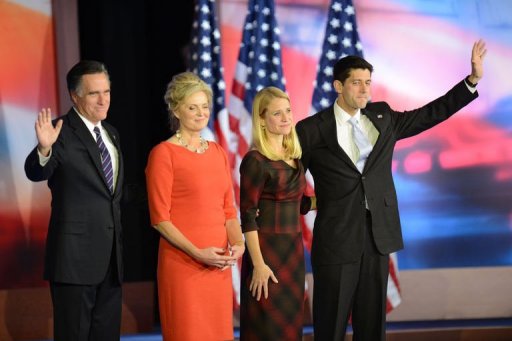
There are three basic ways to understand the Republican defeat last Tuesday–and how to learn from it in future. There was the loss in the Electoral College, where Obama had focused intensely on winning key states; there was the loss in the popular vote, where Obama had lost support over four years, but the Republican ticket did, too; and there was the loss in media and culture, which set the terrain for the broader political struggle.
Electoral College: Romney and the Republicans lost because of their failure to get out the vote. Millions were spent on Orca, a sophisticated computer system that had never been tested before it was deployed on Election Day. By contrast, little effort went into the “ground game”–training volunteers, canvassing, calling voters, knocking on doors.
The Obama campaign may have used high-tech data mining to find out where voters (and donors) were. But it used old-fashioned shoe leather to get them to the polls. It also spent years training volunteers, often using them outside election season, in big legislative battles.
The Republicans had a ready-made army in the Tea Party, but the GOP never quite made its peace with the grass roots and therefore left thousands of people on the sidelines. The result was a narrow miss at a win in key swing states.
Popular Vote: Obama lost 9 million voters between 2008 and 2012, and narrowly lost independents to Romney, but was able to get enough core supporters to the polls to win the popular vote by a wide margin. His campaign did this by targeting specific groups with specific reasons to turn out.
Black voters were mobilized during the Trayvon Martin fiasco. Hispanic voters were motivated by Obama’s (unconstitutional) amnesty-by-fiat. Gay voters were energized by Obama’s symbolic “evolution” on gay marriage. And the Democrats developed the fake “war-on-women” meme to make sure that single women, in particular, marched to the polls. Up and down the ticket, Democrats tarnished even staunchly pro-choice Republicans as extremists.
Republicans, by contrast, appealed to the general interest of the nation rather than making the case group-by-group–and lost.
Media and Culture: Romney and the Republicans chose a positive theme, “Believe in America.” In contrast, Obama and the Democrats asserted a view of the United States as a society conceived in original sin and plagued by immoral inequality that could only be cured through the policies of big government and the personality of Barack Obama. The Occupy Wall Street movement set the stage, and the Democrats followed through.
Amidst talk of a “demographic shift,” the most critical divide was perhaps generational. Romney won among voters 35 and older, while Obama won among young people–the group most damaged by his economic policies but also most dependent on his new entitlements. Obama appealed to a conformist pop culture of urbane secularism, while Romney appealed to fading traditional themes of self-reliance and family cohesion.
Republicans can avoid losing in future by addressing these problems. The party needs a get-out-the-vote organization, and if it cannot build it on its own, it will have to be done by outside groups. It also needs coalitions, and must adapt to a multicultural America by making the case for freedom group by group. Finally, the party needs to fight media memes and cultural battles by making adulthood–for lack of a better word–cool again.

COMMENTS
Please let us know if you're having issues with commenting.